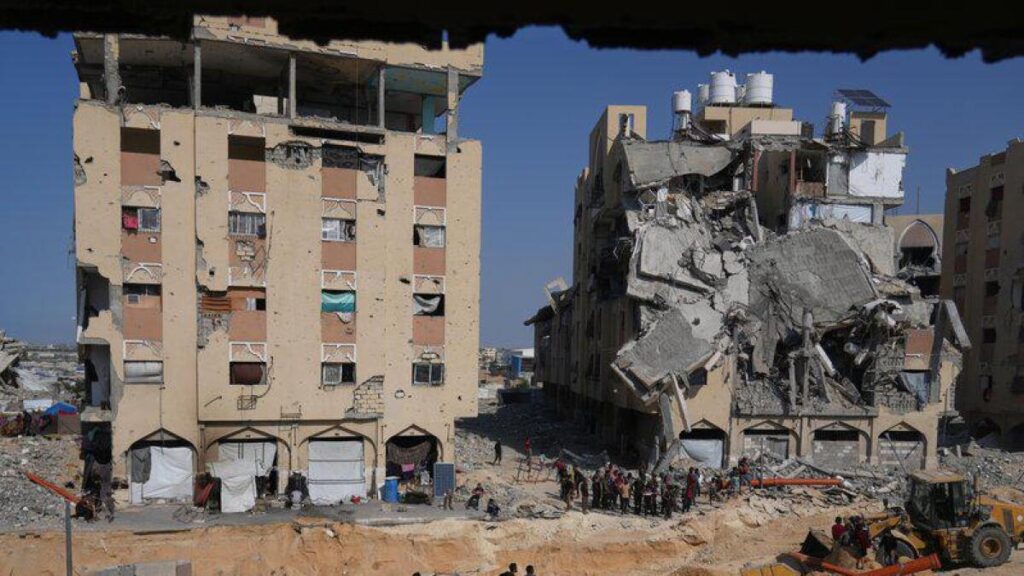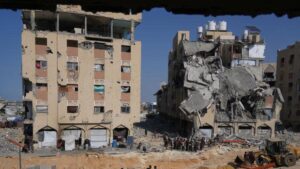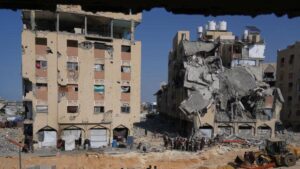
Israeli military operations in the Gaza Strip intensified over the weekend, targeting what it described as militants in the Rafah area. The strikes, confirmed by the Israel Defense Forces (IDF), aimed to dismantle tunnels and military structures after militants allegedly opened fire on Israeli soldiers. Prime Minister Benjamin Netanyahu stated that Israel would respond decisively to any attacks against its forces.
In contrast, Hamas’ armed wing, the Al-Qassam Brigades, asserted its commitment to a ceasefire across Gaza. A spokesperson claimed unawareness of the clashes reported in Rafah, maintaining that there had been no communication with local groups since March. “We affirm our full commitment to implementing all agreements, foremost among them the ceasefire across all areas of the Gaza Strip,” the statement read.
Reports from Gaza indicated a series of violent incidents, including explosions and gunfire. Palestinians in Rafah and nearby towns reported hearing heavy gunfire from Israeli tanks and airstrikes in central Gaza. According to medics at Al-Aqsa Hospital, at least five people were killed in explosions across Deir Al-Balah, with Gaza’s health ministry reporting a total of at least eight fatalities from Israeli attacks in the past 24 hours.
An Israeli military official noted that Hamas had conducted multiple attacks against Israeli forces inside Gaza, including a rocket-propelled grenade attack and sniper fire. The official characterized these actions as a significant breach of the ceasefire agreement. Defense Minister Israel Katz announced that a “yellow line” would be marked to delineate the area from which Israeli forces had withdrawn, warning that any violation would provoke a military response.
The ongoing accusations of ceasefire violations have led to rising tensions between the two sides. Senior Hamas official Izzat Al Risheq claimed the group was still dedicated to the ceasefire, alleging that Israel had committed 47 violations since the agreement was reached, resulting in 38 deaths and 143 injuries among Palestinians.
The controversy has extended to the Rafah border crossing, which has been largely closed since May 2024. Netanyahu indicated that the crossing would remain shut until further notice, despite earlier announcements from the Palestinian embassy in Egypt regarding its reopening for entry into Gaza. The situation remains dire, with the IPC Global Hunger Monitor reporting that hundreds of thousands in Gaza are facing famine conditions.
Furthermore, discussions surrounding the return of hostages have added complexity to the ceasefire. Israel demands the return of the remaining bodies of 28 deceased hostages, while Hamas has returned 20 live hostages and 12 deceased but cited the need for specialized equipment to recover bodies trapped under rubble.
As the situation evolves, key unresolved issues persist regarding Hamas disarmament, governance in Gaza, and the establishment of an international stabilization force. These factors contribute to the ongoing uncertainty about peace prospects in the region.
The renewed fighting has also affected financial markets, with key Tel Aviv share indices dropping nearly two percent on Sunday, highlighting the economic implications of the escalating violence.
In light of these developments, the international community watches closely, with hopes for a resolution to the ongoing conflict dwindling.







